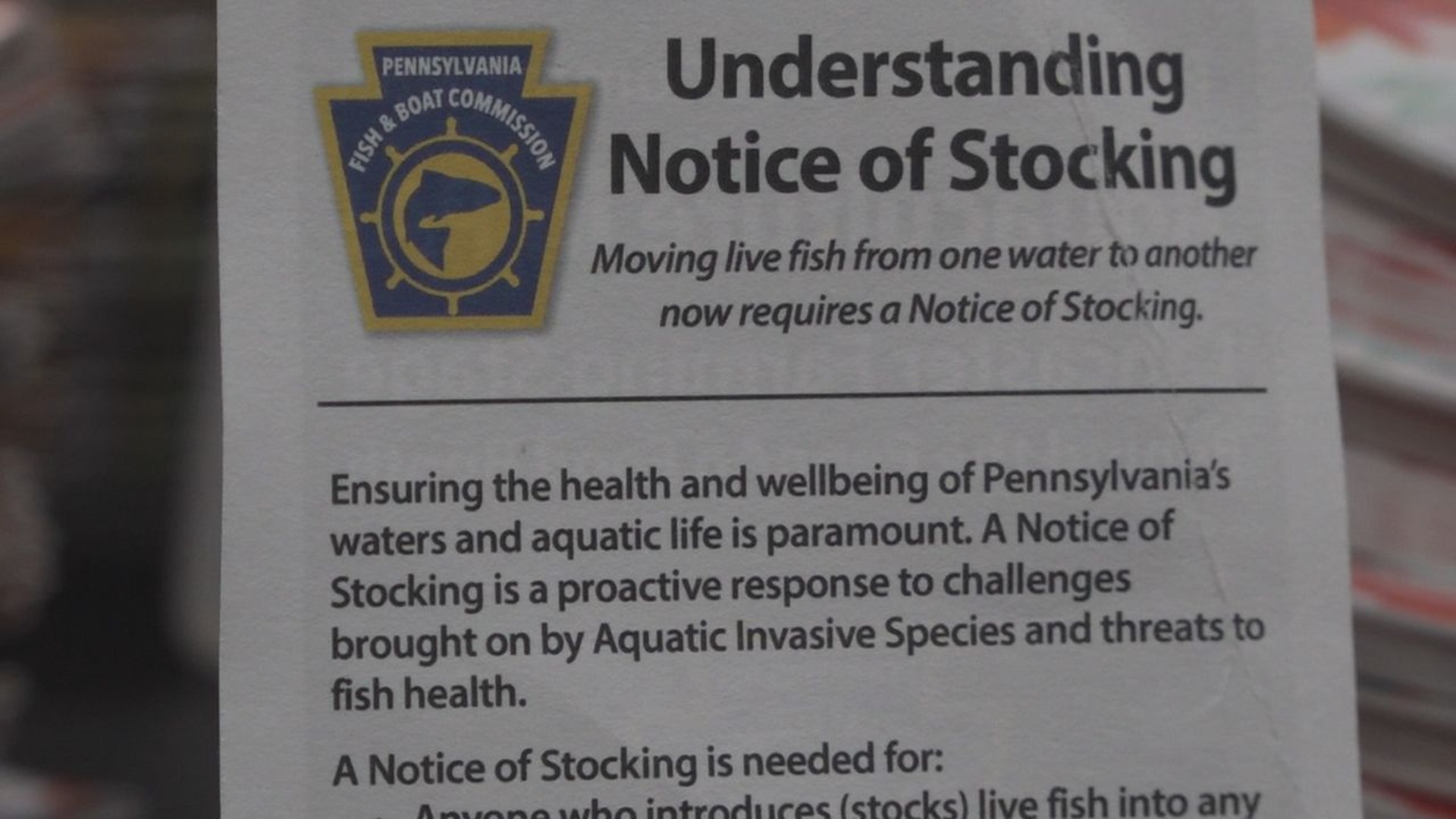HARRISBURG, Pa. — The spread of invasive aquatic species is a problem bubbling across our waterways.
“It’s not just [in] Pennsylvania, it’s nationwide and we’re really playing catch-up to other states," said Tim Schaeffer, executive director of the Pennsylvania Fish and Boat Commission.
That’s why new regulations went into effect on January 1 across the Commonwealth, to try to combat the issue.
“The things we’re putting in place are not uncommon or unusual. Frankly, all our surrounding states have something like this," said Schaeffer.
Anyone can stock our state’s streams and creeks with fish, but now when they do, they’ll have to submit a “notice of stocking” through the Fish and Boat Commission.
“There’s always been restrictions on which fish can be stocked in Pennsylvania," explained Schaeffer. "This doesn’t change any of that. What’s different is now we’ll know what’s going into the water, where it’s going in and we’ve got the disease criteria to make sure they’re clean.”
Until now, Pennsylvania was one of the few states without that.
“We had no paper trail or disease requirements to make sure healthy fish were going in the water," said Schaeffer. "We stock 3.2 million trout every year. We’ve got unbelievable wild trout populations. By knowing where the trout are going in the water, it helps us make better management decisions on behalf of the anglers.”
Boaters are also now required to check their boats and trailers for aquatic life and plants before leaving a waterway property.
“You need to make sure there’s no visible vegetation on your boat motors. Make sure the plug is out of your boat when you move from one water body to another, no water in the boat," Schaeffer explained. "A lot of these invasive species are microscopic, you can’t see them.”
In recent years, there has been mounting evidence of how invasive species are being introduced in Pennsylvania.
“A lot of people have heard of zebra mussels, they’re throughout the Great Lakes system, in lakes in Pennsylvania," said Schaeffer. "A couple of years ago we found zebra mussels in Raystown Lake, a really popular boating lake. We’re pretty sure they got there from water in a boat that came probably from Lake Erie.”
He continued, “Gill lice, that’s a disease that affects brook and brown trout, did find that in some wild populations that we think were brought in from an introduced fish that has the disease."
The Fish and Boat Commission says these regulations will be enforced, but right now it's focused on education.
“This is going to be new for everyone and I’m sure everyone, even up until Opening Day, will be learning about this," said Schaeffer. "So, we’ve really adopted an education-first approach—let people know what’s going on, make sure they’re doing the right thing without a heavy-handed enforcement.”
If there is a serious violation, boaters or anglers could be fined $150.
“It’s the same for any sort of summary offense we have. That’s the base level you would get if you have a fish and boat violation but that’s absolutely not going to be our first thought," said Schaeffer.
Download the FOX43 app here.

